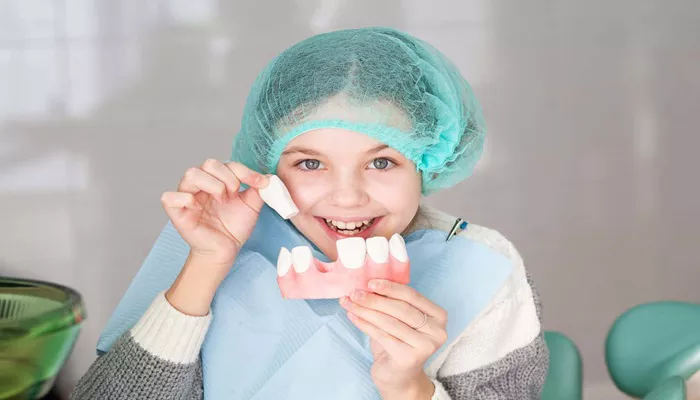Every year, Southampton sees hundreds of tooth extractions among children. The city’s director of public health, Dr. Debbie Chase, stated that these procedures, performed under general anesthesia, should be “preventable.”
Dr. Chase mentioned that there have been discussions about adding fluoride to Southampton’s water supply to enhance children’s dental health. However, a proposal to fluoridate the water for approximately 200,000 residents in the city and parts of southwest Hampshire was abandoned in 2014 after extensive talks.
During a recent meeting of the Southampton City Council’s health overview and scrutiny panel on November 11, Dr. Chase reported that around 500 tooth extractions occur annually among children in the city. She highlighted her public health team’s efforts to promote proper tooth brushing in early years settings and schools.
“Most early years settings across the city are engaged, and we have connections with childminders as well,” Dr. Chase explained. “We are also working in family hubs and some primary schools.”
The public health team is particularly focused on the most deprived areas of Southampton but faces challenges due to limited capacity, which prevents them from reaching every school.
The previous fluoridation proposal received support from NHS leaders but faced opposition from both Southampton City Council and Hampshire County Council. When the plan was withdrawn in 2014, Public Health England indicated it would not proceed without local authority backing.
At the same scrutiny panel meeting, James Roach, director of primary care at NHS Hampshire and Isle of Wight Integrated Care Board (ICB), provided an update on NHS dental services in the city. He acknowledged progress but noted that it is not sufficient to meet local needs.
“We have a plan, and with potential reforms to the national contract—which we are advocating for—we believe we can make significant strides forward,” Mr. Roach stated.
The ICB commissions primary dental care based on units of dental activity (UDA), assigning each treatment a specific number of UDAs. For the 2024/25 period, there are 24 contracts for NHS dental services in Southampton, aiming to deliver 463,231 UDAs. As of September, only 40% of these UDAs had been fulfilled.
“I am not complacent; I recognize there is still work to be done,” Mr. Roach added. “However, we can point to improvements and increased access.”
He noted that a mobile dental unit has provided 12,000 treatments across Hampshire and the Isle of Wight since its launch in February. This unit, operated in partnership with the dental charity Dentaid, addresses complex dental needs effectively.
“The data shows that patients accessing the mobile unit often have higher dental needs due to long-term issues,” Mr. Roach explained.
He also expressed a willingness among NHS dentistry contract holders to collaborate with schools to educate children about oral health and identify local healthcare needs. He announced investments for a dental nurse apprenticeship program and plans for a dental development center in Portsmouth, which he described as a potential “game changer” for creating a pipeline of new dentists.
In summary, while tooth extractions among children in Southampton are high and largely preventable, efforts are underway to improve oral health education and access to dental care throughout the city.
Related topics:

